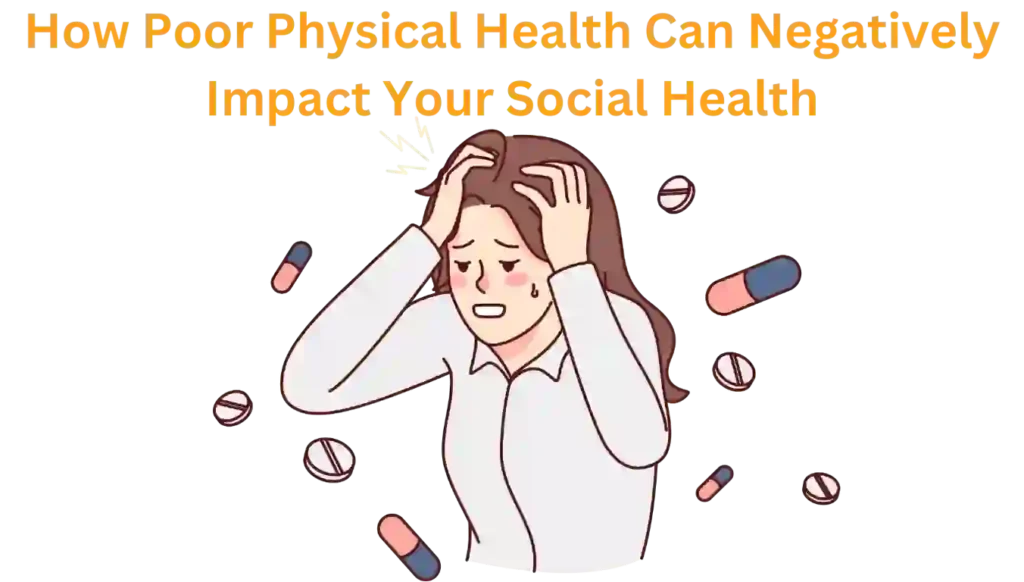Mental health services are like a toolkit for taking care of your mind. They include therapy, counselling, and other support to help you feel better emotionally and mentally. Seeking mental health support is crucial because just like how you visit a doctor when you’re physically unwell, you need help when you’re struggling mentally. These services provide a safe space to talk about your feelings, learn coping skills, and get treatment if needed.
The purpose of this article is to show how using mental health services can lead to positive changes in your life. We’ll explore how they can improve your emotional well-being, help you deal with challenges, and strengthen your relationships. So, if you’re feeling overwhelmed or not quite like yourself, seeking support from mental health services could be the first step towards feeling better.
Table of Contents
Mental Health Services
Mental health services are like a toolbox full of helpful resources for your mind. When you’re feeling overwhelmed, sad, anxious, or just not yourself, these services are there to lend a helping hand. They come in different forms, like talking to a therapist, joining a support group, or getting advice from a psychiatrist. Whatever you’re going through, there’s likely a mental health service that can support you.
It’s important to seek mental health support because just like how you go to the doctor when your body feels unwell, your mind deserves attention too. Ignoring mental health issues can make them worse over time. By reaching out for help, you’re taking an important step towards feeling better. Mental health services provide a safe and confidential space where you can express your thoughts and emotions without judgment.
The purpose of mental health services is to help you feel better emotionally and mentally. They can teach you coping skills to deal with life’s challenges, provide tools for managing stress, and offer guidance on improving your overall well-being. Whether you’re facing a specific mental health condition or simply seeking personal growth and self-discovery.
Benefits of Using Mental Health Services
Using mental health services can bring about a lot of positive changes in your life. One big benefit is that it can improve your emotional well-being. When you’re struggling with your mental health, it can feel like you’re stuck in a fog. Mental health services can help clear that fog by giving you strategies to manage your feelings and cope with challenges.
Another benefit is that it can help reduce your symptoms. Whether you’re dealing with anxiety, depression, or another mental health issue, getting support can make a big difference. Therapy, medication, or other treatments recommended by mental health professionals can help alleviate your symptoms and improve your quality of life.
Using mental health services can also increase your self-awareness. Sometimes, we’re not fully aware of why we feel the way we do or why we react to certain situations. Therapy and counseling can help you understand yourself better, uncover patterns in your thoughts and behaviors, and identify areas for personal growth.
Moreover, mental health services can strengthen your relationships. When you’re struggling with your mental health, it can affect your interactions with others. By working on yourself through therapy or counseling, you can learn how to communicate better, set boundaries, and build healthier connections with the people around you.
Factors Influencing the Effectiveness of Mental Health Services
Several factors can influence how effective mental health services are for individuals seeking support.
- Therapeutic Relationship: The connection between you and your mental health provider plays a significant role. A trusting and supportive relationship can enhance the effectiveness of therapy or counseling sessions, fostering a safe space for open communication and collaboration towards your goals.
- Client’s Motivation and Engagement: Your willingness to actively participate in the therapeutic process greatly impacts its effectiveness. Being open to exploring your thoughts and emotions, practicing recommended techniques outside of sessions, and setting realistic goals can contribute to positive outcomes.
- Treatment Modalities and Approaches: Different therapeutic approaches suit different individuals and conditions. Whether it’s cognitive-behavioral therapy (CBT), mindfulness-based techniques, or psychodynamic therapy, finding the right fit tailored to your needs and preferences enhances the effectiveness of mental health services.
- Cultural Considerations: Cultural background, beliefs, and values can influence how you perceive and respond to mental health services. Providers who acknowledge and respect cultural diversity, integrate culturally sensitive practices, and adapt treatment approaches accordingly can better engage and support individuals from diverse backgrounds.
- Stigma and Barriers to Access: Stigma surrounding mental health issues can deter individuals from seeking help or adhering to treatment. Addressing stigma through education, advocacy, and destigmatizing language can encourage more people to access and benefit from mental health services.
Challenges and Limitations
While mental health services offer valuable support, several challenges and limitations can impact their effectiveness.
- Resource Constraints: Limited funding and resources can result in long wait times for appointments, reduced availability of services, and insufficient staffing levels. This can hinder timely access to care and lead to frustration for individuals seeking support.
- Long Waiting Times: High demand for mental health services often leads to extended wait times for appointments, which can exacerbate distress and delay timely intervention. Long waits may deter individuals from seeking help or cause their conditions to worsen while they await treatment.
- Insurance Coverage and Affordability: Inadequate insurance coverage or lack of financial resources may pose significant barriers to accessing mental health services. High out-of-pocket costs for therapy sessions, medications, or specialized treatments can limit options for those in need of support, particularly for marginalized communities or individuals with limited financial means.
- Stigma and Social Perception: Stigma surrounding mental illness can contribute to reluctance in seeking help and may result in individuals avoiding or delaying treatment due to fear of judgment or discrimination. Negative societal attitudes towards mental health can perpetuate misconceptions and hinder efforts to promote mental well-being.
Strategies for Maximizing Benefits
By implementing these strategies, individuals, communities, and policymakers can work together to promote mental well-being.
Early Intervention and Prevention
Proactively addressing mental health concerns before they escalate can prevent more severe issues later on. Encouraging regular mental health check-ins and promoting awareness of early warning signs can facilitate early intervention and promote timely access to support services.
Holistic Approaches to Treatment
Emphasize a holistic approach to mental health that addresses the interconnectedness of mind, body, and spirit. Integrating complementary therapies such as mindfulness practices, exercise, nutrition, and creative outlets can enhance overall well-being and supplement traditional treatment modalities.
Community Support and Integration
Foster a sense of belonging and support within communities by promoting mental health education, peer support groups, and community-based initiatives. Building strong social networks and access to community resources can provide vital support systems for individuals navigating mental health challenges.
Advocacy and Policy Reform
Advocate for policy changes and increased funding to improve access to mental health services and reduce barriers to care. Support initiatives that prioritize mental health education, destigmatization efforts, and equitable distribution of resources to ensure that all individuals have access to quality mental health care.
Conclusion
Using mental health services brings many advantages, making life easier and happier. These services help people understand their feelings better and deal with tough times. They also improve relationships and boost self-confidence.
Although there may be challenges like long waits and stigma, working together can make mental health care better. Starting early, using different methods like therapy and support groups, and speaking up for better policies can help. By doing these things, we can create a system that works for everyone and makes it easier for people to get the help they need.







